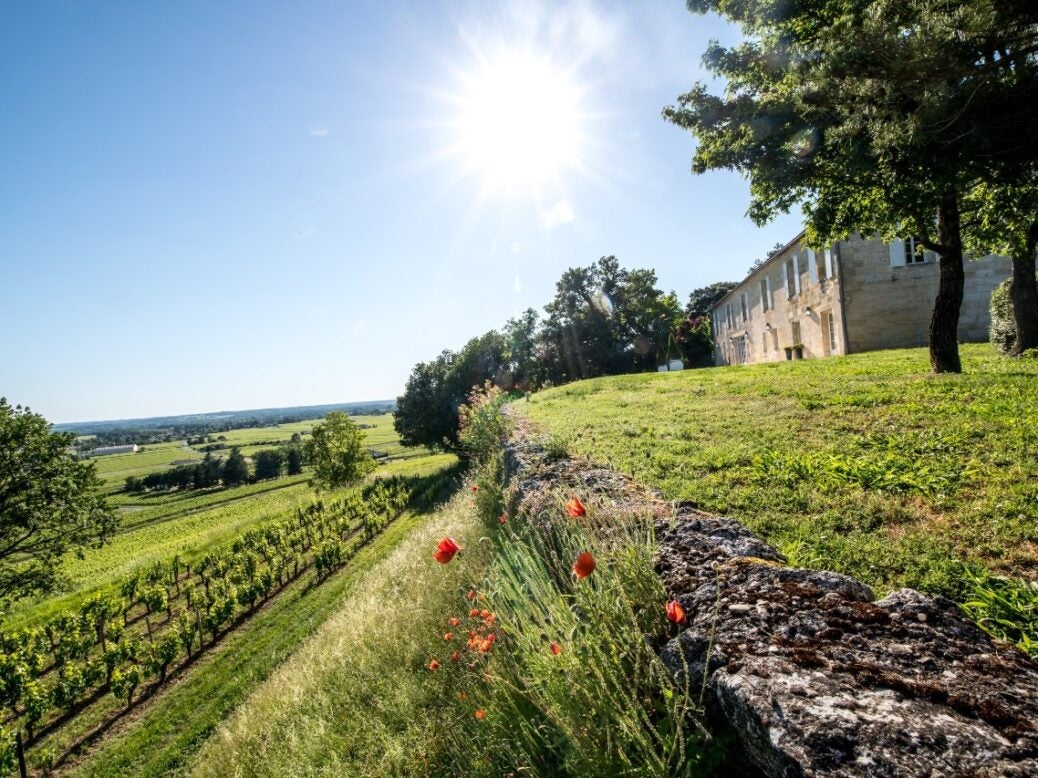
The topography of the exquisite Château Quintus in Saint-Émilion helps create truly remarkable wine
In 1936, Clarence Dillon planned to buy a vineyard in Bordeaux’s Saint-Émilion. It never happened. 65 years later, Dillon’s great-grandson, Prince Robert of Luxembourg, realised his forebear’s ambition and bought the estate.
Prince Robert is chairman of Domaine Clarence Dillon, the family-run business started by his great-grandfather that now owns several wine estates. One of these is Château Quintus, a property established in 2011 after the purchase of Château Tertre Daugay, to which plots of the former Château L’Arrosée were added in 2013.
It was named ‘Quintus’ as Domaine Clarence Dillon’s fifth wine, and also as a nod to the site’s Roman heritage – Saint-Émilion dates back to the fourth or fifth century AD. The estate is notable for more than just its history. It is situated on the southwestern slopes of the UNESCO World Heritage site of Saint-Émilion, perched on a limestone promontory culminating at an altitude of 62 metres.
From the top, one enjoys 360-degree views of the Dordogne Valley. ‘It’s amazing – you feel like you’re in a different world when you are there,’ says Cecile Riffaud, marketing director at Domaine Clarence Dillon.
The locale is irresistibly romantic, but it also serves a practical purpose – 28 hectares worth of vines on the north, west and south sides of Château Quintus means a wealth of microclimates and limestone terroir. This grows a fantastic array of Merlot and Cabernet Franc, which are blended to create Château Quintus.
‘The rich topography is good for the wine – you can really enhance the quality with blending,’ says Riffaud.
The natural biodiversity at Château Quintus has become its selling point. Isabelle Cholat is the woman in charge of overseeing Domaine Clarence Dillon’s environmental procedures – to protect and enhance the grounds mowing is done only once a year, in the autumn.
The vineyard workers sow wild flowers on fallow land and in plots where vines have just been uprooted, as well as planting hedgerows of local varieties in less wooded areas. Fauna also thrives: An enormous array of bug life exists in these parklands, in fact, in 2019, Château Quintus hired a doctor of entomology and landscape ecology to find out exactly how much.
‘She found 800 insects, divided into 200 different species,’ says Cholat. ‘Seven species of ladybirds 37 different species of spiders, 11 species of wasps, 19 species of bees and 15 species of butterflies.’
All play crucial roles in the ecosystem of the vineyard, and, as a result, Château Quintus has not used insecticide since 2017.
Instead it uses an organic method where pheromones are released. ‘It is a natural way to protect the biodiversity while protecting the wine,’ says Cholat, ‘because at the end of the day we want to have wine, but we want to do it in a very responsible way.’ Last year, the work that new estate manager Mariette Veyssière has done to increase biodiversity and sustainability paid off.
Unlike 2021, 2020 was hot and dry, with barely a drop of rain falling between the months of June and August. They had to adapt the vineyard practices, for example, leaving the leaves intact to protect the grapes from the sun (usually they are cut off). The result? Château Quintus’ best vintage yet.







